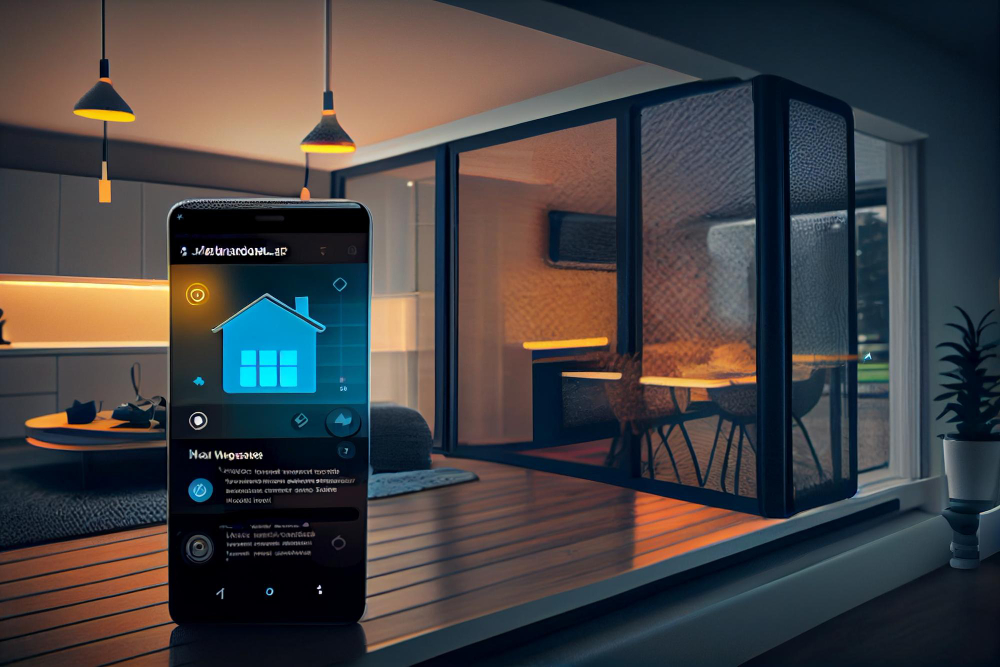Unlock up to 10,000 USDT with the best MEXC referral code, mexc-NFTP. Learn how to claim bonuses, reduce trading fees, and earn rewards for deposits and trades.
Tech and Homeownership: Everything You Need to Know About Smart Homes

A smart home is a relatively new term that refers to home setups with smart devices that automatically control home appliances remotely using the internet.
The devices can be controlled with various networked units which include smartphones.

Home appliances are interconnected via the internet, allowing users to control their functions like a home theater, toggling between, lighting, AC control, security access, etc. Users can remotely control devices and automate pacific tasks.
Convenience is the main focus of smart homes, but how does this technology work and translate to the homeowner?
Keep reading and find out.
How smart home systems work in practice
All smart home devices are interconnected and accessed through a central device – game console, laptop, tablet, or smartphone. All of the appliances connected can be controlled through the home automation system. You have to install the system on a networked device before you can start using the functionalities.
Most modern smart home appliances have learning capabilities meaning they can learn homeowner’s schedules and proactively make the proper adjustments. For example, a smart home can recognize when nobody is home and automatically turn off lighting to preserve energy and cut costs.
On the other hand, home automation systems can send automated alerts to homeowners if they detect any motion while the owner is away. Other systems can be set up to send automated calls to the authorities.
Are smart home systems the same thing as home appliances?
Understanding this difference as a homeowner is crucial because you can sell your home for a better price if you create that “smart” layer. At the same time, you should know that home insurance doesn’t cover these devices’ “smart” aspect.
For example, if your refrigerator compressor stops working, this is covered by warranty, but if it’s unable to connect to the network, it’s not considered a typical household appliance error. If you want to learn more about the topic, check out this blog post about seller home warranty from Cinch Home Services.
Many people are confused about what smart home systems actually are. Yes, you can have a smart TV, refrigerator, or dishwasher, but does this mean these are smart home systems? No, these are still “traditional” home appliances every home has, regardless of whether they’re smart.
Smart home devices/systems can be hardwired, wireless, or both. Together they create an IoT infrastructure that uses the Internet to communicate. On the other hand, specific smart home devices are designed only to control or manage the network.
Benefits of smart homes
Smart homes are convenient – there’s no doubt about that. You can control all of the appliances and systems in your home using a smartphone. Homeowners can be in the garage and turn on their AC or control lighting. Smart doorbells let homeowners see who is in front of their door and even talk to them remotely when they’re not home.
Smart home systems also help homeowners cut energy costs. Smart homes can be automated to turn the heat off just before you arrive home, turn off the currently unnecessary systems, and use their appliances more efficiently overall.
As mentioned, you can expect a better price when selling a smart home because of all the devices and functionalities. People who haven’t lived in a smart home are especially impressed by the features, and this helps sellers sway them their way.
Top smart home devices in 2023
The smart home market is growing at an incredible rate, and many new devices are coming out each year. Here are some of the best smart home devices you should consider adding to your home:
Smart hubs
Smart hubs are platforms that bring all your devices into one place. They give greater control and ease of use for all of your devices. You can access rooms based on devices and connect devices to work synchronized.
Virtual assistants
Google Assistant and Alexa are some of the most popular virtual assistants most smart homes have. They are voice-controlled devices that respond to your commands and can control other devices in your home and notify you of important events.
Smart plugs
These electrical plugs look like regular ones and can be fitted into existing outlets. They connect via Bluetooth or Wi-Fi and let you control appliances through virtual assistants. You can turn devices on and off, schedule actions, or simply turn off the power supply for safety.
Smart bulbs
Smart bulbs can control lighting in multiple ways and create different ambiances. They can even sync with moves, music, or games you are playing. They can fit into regular sockets and don’t require any additional maintenance.
Conclusion
Even though smart homes and devices are the future, they can be quite expensive to buy and maintain. There are not enough qualified technicians to help fix the network issues, and the repairs can be costly. So what do you think, are they worth it or not?

